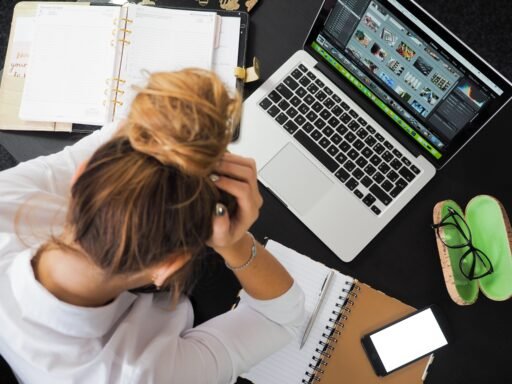Imagine this: it’s the morning of a big presentation or an important job interview, and you can feel the nerves building up inside your stomach. As the pressure mounts, you suddenly feel the familiar sensation of needing to use the bathroom. But what is it about anxiety that seems to make us rush to the toilet? In this article “What Does Anxiety Poop Look Like”, we will explore the curious phenomenon known as “anxiety poop” and uncover what it looks like and why it happens. So, prepare to gain a deeper understanding of your body’s response to stress and the surprising ways in which anxiety can manifest itself.
What Does Anxiety Poop Look Like
Overview of anxiety and its effects on the body
Anxiety is a common and natural response to stressful situations or perceived threats. It is the body’s way of preparing for a fight or flight response. However, when anxiety becomes chronic or overwhelming, it can have detrimental effects on both our mental and physical health. Anxiety can impact various systems in the body, including the digestive system.
Connection between anxiety and gastrointestinal symptoms
The brain and the gut are closely interconnected, forming what is known as the gut-brain axis. This means that emotions, thoughts, and stress can directly influence the functioning of the gastrointestinal (GI) tract. Anxiety can manifest as physical symptoms in the digestive system, commonly referred to as “anxiety poop.”

How anxiety affects the digestive system
Anxiety triggers the release of stress hormones, such as cortisol, which can disrupt the normal functioning of the digestive system. When you are anxious, your body diverts blood flow away from the digestive organs to other parts of the body, preparing for potential danger. This can slow down digestion and result in a range of GI symptoms, including changes in bowel habits.
Physical symptoms of anxiety poop
Anxiety poop can manifest in various ways, depending on the individual. Common physical symptoms include diarrhea, constipation, frequent and urgent bowel movements, abdominal cramping, bloating, and nausea. These symptoms can be distressing and add to the overall discomfort experienced by individuals dealing with anxiety.

Changes in bowel habits
Anxiety can disrupt the normal rhythm of bowel movements. Some individuals may experience an increase in the frequency of bowel movements, leading to multiple trips to the bathroom throughout the day. On the other hand, anxiety can also cause constipation, making it difficult to pass stools regularly. These changes in bowel habits can be frustrating and contribute to overall anxiety levels.
Consistency and appearance of anxiety poop
The consistency and appearance of anxiety poop can differ from person to person. In cases of anxiety-induced diarrhea, the stool may become loose, watery, or even explosive. On the contrary, anxiety-induced constipation can lead to dry, lumpy stools that are difficult to pass. The appearance of anxiety poop can provide insights into the underlying digestive disturbances associated with anxiety.

Frequency and urgency of anxiety poop
One characteristic of anxiety poop is the increased frequency and urgency of bowel movements. The constant feeling of urgency to have a bowel movement can be distressing and limit one’s daily activities. Additionally, anxiety-induced diarrhea can lead to a sudden urge to use the bathroom, causing individuals to feel anxious about finding a restroom in time.
Possible causes of anxiety poop
There are several potential causes for anxiety poop. Firstly, as mentioned earlier, the release of stress hormones disrupts the normal functioning of the digestive system. Moreover, anxiety can also affect the balance of gut bacteria, leading to further gastrointestinal disturbances. Additionally, certain medications used to manage anxiety, such as selective serotonin reuptake inhibitors (SSRIs), can contribute to changes in bowel movements.
Impact of anxiety on digestion
The impact of anxiety on digestion goes beyond just anxiety poop. Chronic anxiety can impair digestion in several ways. It can slow down the movement of food through the digestive tract, resulting in delayed gastric emptying and potential nutrient malabsorption. Anxiety can also increase sensitivity in the gut, leading to heightened pain perception and discomfort.
Strategies to manage anxiety-induced digestive issues
Managing anxiety-induced digestive issues requires addressing both the underlying anxiety and the gastrointestinal symptoms. Here are some strategies that can help:
- Seek professional help: Consider reaching out to a mental health professional who can help you manage and cope with anxiety effectively. Therapy, such as cognitive-behavioral therapy (CBT), can provide valuable tools and strategies for managing anxiety.
- Practice stress-reducing techniques: Engage in activities that promote relaxation and stress reduction. This can include deep breathing exercises, meditation, yoga, or engaging in hobbies that you enjoy.
- Exercise regularly: Physical activity has been shown to reduce anxiety levels and improve overall well-being. Find an exercise routine that works for you and incorporate it into your daily life.
- Maintain a healthy diet: Eating a balanced diet rich in fiber, fruits, vegetables, and whole grains can support regular bowel movements and promote gut health.
- Stay hydrated: Drinking an adequate amount of water can prevent dehydration and help maintain proper digestion.
- Avoid trigger foods: Some individuals may find that certain foods or beverages exacerbate their anxiety poop symptoms. Identify and avoid these triggers to minimize discomfort.
- Consider probiotics: Probiotics are beneficial bacteria that can support a healthy gut microbiome. Discuss with your healthcare provider if incorporating probiotics into your routine might be beneficial for you.
In conclusion What Does Anxiety Poop Look Like
Anxiety poop encompasses a range of gastrointestinal symptoms that can impact an individual’s daily life and overall well-being. Understanding the connection between anxiety and the digestive system is crucial in managing anxiety-induced digestive issues effectively. By implementing strategies to manage anxiety and promote a healthy digestive system, individuals can find relief from their anxiety poop symptoms and improve their quality of life. Remember, seeking professional help and guidance is essential in managing chronic anxiety and its associated physical symptoms.
Frequently Asked Questions:
Q1: What is anxiety poop like?
“Anxiety poop can manifest in various ways. It may be loose, urgent, or accompanied by stomach discomfort. Understanding these signs can help individuals manage the connection between anxiety and bowel movements.”
Q2: What does stress poop look like?
“Stress poop can range from loose stools to more frequent bowel movements. The impact of stress on the digestive system can result in changes in stool consistency and frequency.”
Q3: What color is poop when you have anxiety?
“The color of poop during anxiety remains within the normal spectrum, typically varying from shades of brown. Significant color changes may warrant attention and consultation with a healthcare professional.”
Q4: How long does anxiety diarrhea last?
“Anxiety-induced diarrhea can vary in duration. It’s essential to address the underlying anxiety and consider lifestyle changes, such as stress management techniques, to alleviate symptoms.”
Q5: Can anxiety cause weird bowel movements?
“Yes, anxiety can lead to irregular bowel movements, including changes in consistency and frequency. Adopting stress-reduction practices may contribute to stabilizing bowel habits.”
Q6: Is poop anxiety normal?
“Experiencing changes in bowel habits due to anxiety is a common occurrence. Normalizing discussions around the mind-gut connection helps individuals recognize and manage these symptoms.”
Q7: How do I stop anxiety poop?
“Managing anxiety through relaxation techniques, regular exercise, and a balanced diet can contribute to stabilizing bowel movements. Consulting a healthcare professional for personalized advice is advisable.”
Q8: What does unhealthy poop look like?
“Unhealthy poop may exhibit signs such as persistent changes in color, consistency, or the presence of blood. Seeking medical attention for a thorough evaluation is recommended.”
Q9: What is an unhealthy stool color?
“Stool colors indicative of potential issues include black, red, or pale stools. Any persistent deviations from the usual brown color warrant attention and consultation with a healthcare provider.”
Q10: How do I know if I have anxiety?
“Recognizing symptoms such as excessive worry, restlessness, and changes in bodily functions, including bowel habits, may indicate anxiety. Seeking professional guidance can provide a clearer understanding.”
Q11: What color is your poop with IBS?
“Poop color in individuals with irritable bowel syndrome (IBS) can vary, but it typically falls within the normal spectrum of brown shades. Significant changes may require further investigation.”
Q12: How do I know if my diarrhea is anxiety?
“Associating diarrhea with anxiety involves examining patterns of occurrence. If diarrhea aligns with stressful situations, it may be linked to anxiety. Consulting a healthcare professional helps in confirming the connection.”
Q13: Can anxiety cause diarrhea all day?
“Yes, anxiety can lead to prolonged bouts of diarrhea. Managing stress levels through therapeutic interventions and lifestyle adjustments may contribute to symptom relief.”
Q14: Can bad anxiety give you diarrhea?
“Intense anxiety can indeed lead to diarrhea. Recognizing triggers and implementing coping mechanisms are crucial steps in addressing anxiety-related digestive symptoms.”
Q15: What does Type 6 poop mean?
“Type 6 on the Bristol Stool Scale indicates a stool with a mushy consistency and ragged edges. Monitoring and understanding stool types can provide insights into digestive health.”
Q16: Does healthy poop float or sink?
“Healthy poop generally tends to sink. Changes in buoyancy may signify dietary or digestive issues, prompting consideration of lifestyle adjustments and professional advice.”
Q17: What does Type 5 poop mean?
“Type 5 on the Bristol Stool Scale represents stool with soft blobs and clear-cut edges. Recognizing these variations can aid individuals in gauging their digestive health.”
Sources:
- Source 1. What Does Anxiety Poop Look Like
- Source 2. Anxiety
- Source 3. Anxiety Treatment
- Source 4. Anxiety Symptoms
- Source 5. Anxiety Medication